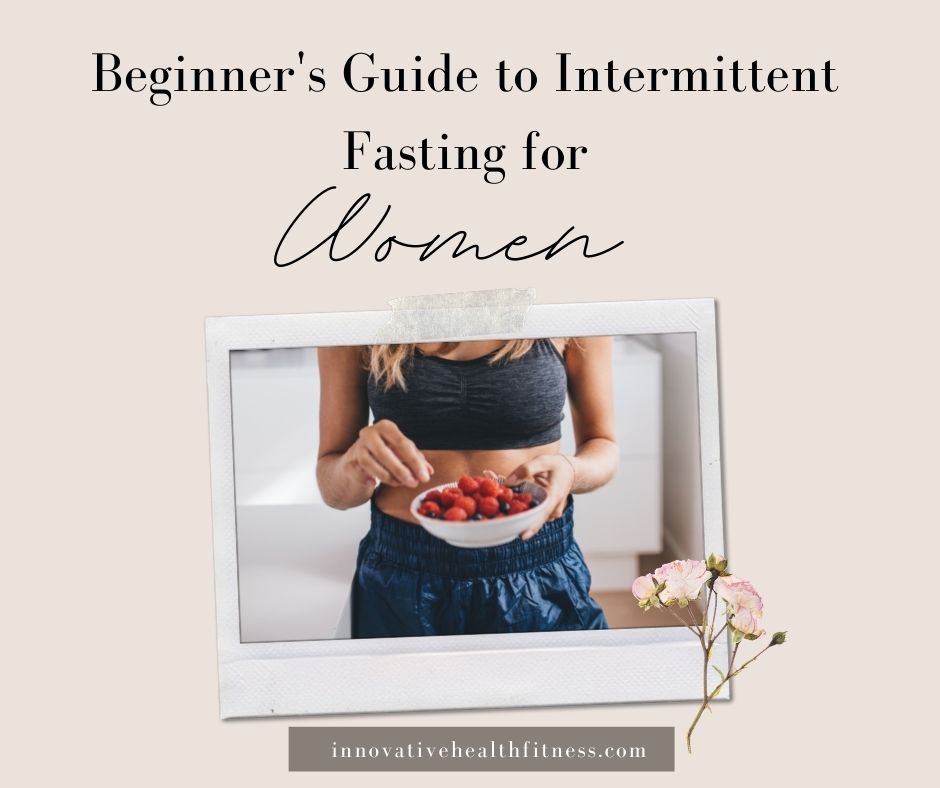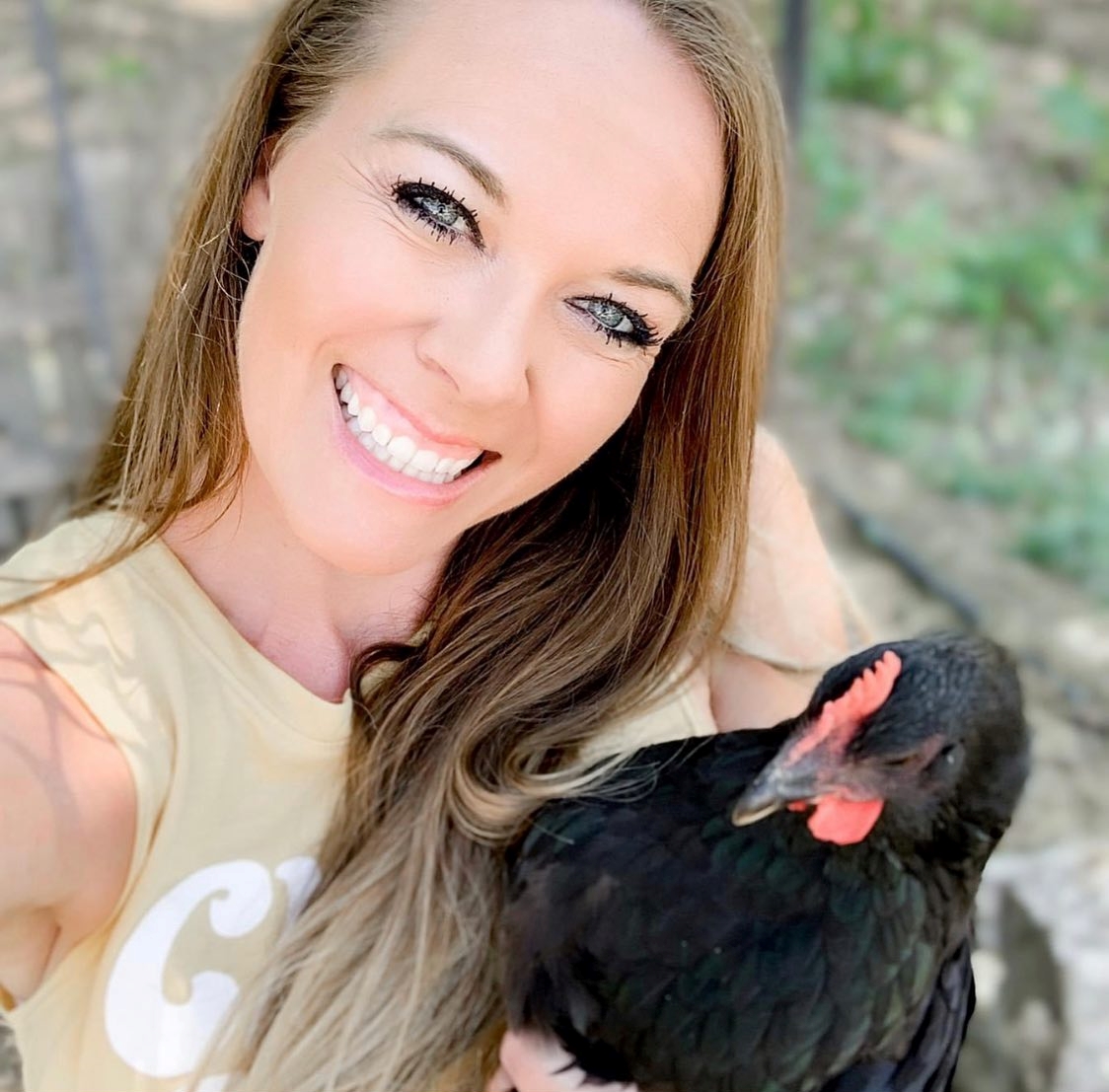Last updated on June 14th, 2021 at 03:11 pm

Have you ever heard of intermittent fasting? Ever wonder what intermittent fasting is? You actually might be doing intermittent fasting naturally without even knowing it! I have been wanting to put this beginner’s guide to intermittent fasting for women together for a while now! I have a short older blog on fasting you can check out here.
Okay so what exactly is intermittent fasting?
Essentially, intermittent fasting isn’t dieting at all, it’s just eating in a set eating window. For some people, intermittent fasting is going without food for 12-36 hours. Numerous studies show that it can have powerful benefits for your body, hormones, and brain.
Think about it, we fast every day when we sleep, this is just extending the fasting period =)
Does this sound like it’s gone against EVERYTHING you’ve been told you’re supposed to do to lose weight? Like you’re supposed to eat every 2-3 hours to keep your metabolism revved up? I hear you!
A lot of people think of fasting as a form of deprivation or starving–but let me tell you that that is not true!! Our ancestors did not have food available 24/7! If you’re overweight…do you eat during most of your waking hours?
It’s pretty normal in our society today…EVERYTHING is centered around FOOD! Parties, dates, birthdays, any special occasion, watching TV, etc., etc., etc!! So don’t think of intermittent fasting as depriving yourself, rather becoming more in tuned to your body!
Why eat this way? There are actually quite a few benefits to intermittent fasting!
Intermittent Fasting Changes The Function of Cells, Genes, and Hormones
When you don’t eat for a while, several things happen in your body. For example, your body initiates important cellular repair processes and changes hormone levels to make stored body fat more accessible. Here are some of the changes that occur in your body during fasting:
- May increase the body’s responsiveness to insulin, which regulates blood sugar. This can help to control feelings of hunger and food cravings! When insulin levels drop significantly, helps the fat burning process.
- Increase energy
- Improve memory
- Improve immunity, lower risk of diabetes, and improve heart health
- Increase production of neurotrophic growth factor, a protein that promotes neuron growth and protection, which makes us more resilient to neurological stress, thereby staving off neurodegenerative diseases.
- Burn more fat! Science shows that it takes your body about 6-8 hours to metabolize stored carbohydrates…then after that happens, your body starts to use your stored fat for fuel. If you are eating every 8 hours or sooner, you make it more difficult for your body to use your fat stores as fuel.
- Detoxification. When your body isn’t spending resources on digesting food, it has more capacity to rid the body of toxins, repair and rebuild tissues.
- Hormone regulation. Fasting increases human growth hormones (HGH), which results in faster muscle repair and growth, as well as slowing down the aging process.
- Leptin, the hormone that regulates fat storage and hunger signals, and ghrelin, a hormone that tells your brain the body is hungry, are normalized by routine fasting.
- Increases Glugcagon, Controls blood sugar levels and helps the breakdown of the fat store in the bloodstream.
- Improves fat loss and metabolic repair.
How does intermittent fasting work?
There are a LOT of different ways you can fast!
One way is to fast for 12-16 hours each day and then feed for the remaining 8-12 hours. During the fasting period, you consume water, black coffee, or tea.
When to Fast?
Basically dinner to breakfast. What every time you finish dinner you don’t eat until for12-16 hours after your last meal.
For example, if you finish dinner at 6 pm you wait to eat again until a minimum 6 am
I like to fast from 6 pm-1 pm most days. Some days I will eat around 10 am just depends on the day. So after dinner no munching on anything, and I eat breakfast later than normal.
Consume the following:
- water
- unsweetened tea
- black coffee
- BCAA’s
- bone broth
- Don’t binge eat or regulate calories
Intermittent Fasting for Women:
If you decide to give fasting a try, make sure that you still consume adequate calories for your goals during your eating window. Don’t go less than 1200 calories/day, and many women need more than this. 1200 is the MINIMUM. If you are pregnant or nursing I don’t recommend intermittent fasting.
How can you get started with intermittent fasting?
I don’t suggest you jump in and start fasting 16 hours each day I would start by cutting back on carbs and increasing fats in your diet so your body can switch to being a fat burner instead of a sugar burner.
Then, you can start by eating dinner before 6, then eat breakfast at 6 the next day. Ease your body into it, and don’t force yourself to fast if you’re hungry. Some days I wake up hungry, so I eat! As fasting starts to feel more natural, gradually increase your fasting window, so you’re fasting 16 hours each day and eating in an 8-hour window. Your eating window can be whatever is convenient for YOU! 12pm-8pm, 10am-6pm, whatever fits your schedule!
- I do recommend stopping eating at least 4 hours before you go to bed.
If you feel great eating in a 12-hour window, awesome. Don’t feel like you have to eat in a condensed window if it doesn’t feel right for YOU. We are all different!! Like I said, some days I eat in a 12-hour window, some days a 6-hour window. It depends on how I feel that day!
Note that this way of eating will NOT work if you continue to fuel your body with junk (sorry). You MUST eat clean! So think of the food our ancestors ate…veggies, meats, nuts, and seeds. There weren’t any twinkles, chips, or soda back then…our bodies weren’t made to process those kinds of foods! If you do feel dizzy start with some water you might just be dehydrated. If you are still feeling lightheaded eat some protein don’t go for the easy slice of bread or carbs.
Please keep in mind that fasting isn’t for everyone!!! Some people can do this naturally while other people get dizzy or light-headed without frequent feedings. Again this could stem from not eating enough protein and or drinking enough water. So, as anything, do what is right for YOU! Don’t try intermittent fasting if you are pregnant or have a history of disordered eating.
Leave me a comment below if you have tried intermittent fasting or if you have any questions!

Related posts:

Hi!! I’m Kristin McConnell, I am so glad you are here! I am a wife to my amazing husband and a Mom of two fabulous kids.




Pingback: When is the Best Time to Workout? ⋆ Innovative Health & Fitness